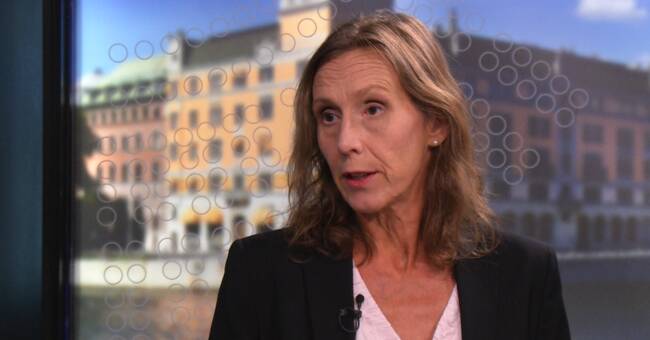We are beginning to get used to the fact that the Minister of Finance is scattering tens and hundreds of billions around him.
It is a statement that would have felt completely unreasonable for all time only six months ago.
But just then, Stockholmers set off on their sports holiday trips to the Alps, and since then, as is well known, nothing is the same.
The government and the coalition parties have repeatedly presented new crisis packages, cheered on by the country's heaviest, and usually stingy and strict, economics professors.
Today, the 100 billion measures for next year were presented, and there is a crucial difference, compared to the previous crisis packages.
The new money is mainly not to stop something, ie the crisis, but to start something.
It is this money that will get the engine and wheels rolling.
And then it is of course crucial that the vehicle is directed in the right direction.
It is about not subsidizing jobs without future prospects, but instead supporting and facilitating jobs that have a future ahead of them.
In this crisis, where many young people have lost their jobs, it is particularly important.
Now it is important to calculate what society will look like in the future, to know which measures provide the most lasting jobs.
However, such calculations did not characterize the Minister of Finance's presentation this morning.
Instead, an improbably long list of things is presented, within important themes per se.
Green transition is incredibly important
Investing as much support money as possible in green conversion is incredibly important, not least the OECD pointed out last week, with charts showing that much more support goes to fossil-based activities than sustainable ones.
But it is not easy to see how this fact can lead the country's government to discuss the refurbishment of footbridges over pools of water in nature reserves in connection with today's historic crisis budget.
Certainly, many of the measures presented today will actually provide jobs - not least various educational initiatives, state money for the municipalities, and tax cuts if they go straight to consumption.
But it is probably just as certain that many measures, for tens of billions, have been pushed through for reasons other than that they have been the best assessment of what will create the most jobs.
If everything goes as the government and other forecasters believe, that large parts of this year's GDP race will be brought in as early as next year, it may not be the whole world with the billions wasted.
"Based on nothing going wrong"
Unemployment will certainly increase next year regardless, but with the rapid recovery in GDP predicted, the pandemic may still not lead to years of exclusion of companies and people.
But, it is based on the fact that nothing goes wrong in the future.
No new extensive shutdowns, no large spread of infection, no major wave of bankruptcies, credit crunch or stock market crash.
That so many forecasters are stuck with this joy calculation is a little difficult to understand - some or some are usually more pessimistic than others.
After all, the current financial plan describes the risks.
There is also a slightly more depressing scenario.
In that scenario, GDP is a couple of hundred billion lower than the main scenario next year.
Then it is good if the money in the budget today has done as much good as possible - because not even Sweden will, despite the good government finances in the initial situation, be able to honk and run on the credit market for any length of time.

